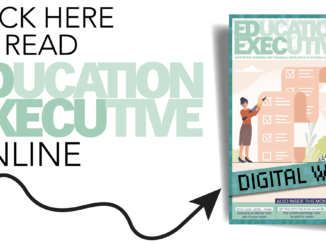
Michael Rosen chokes back feelings of despair and rage in this open letter after his own three months in intensive care
CREDIT: This is an edited version of an article that originally appeared on The Guardian
I wonder if you saw this post on Twitter from 24 November; ‘Your child will experience a mild illness’. This is what I was told when school sent my child home following a case of COVID in her class. My child didn’t experience a thing but I, her mother, ended up fighting for my life. Just admit schools aren’t safe.’ @Nutellandchill (not someone I know).
Of course, a tweet is just a tweet and I know there’s no certainty that this is in all respects a true story. On the other hand, there are some core truths and implications we know. Most children who get COVID will experience it mildly; a few will be very sick and there are rare occasions when the illness has killed children. An infected child can pass COVID to adults, some of whom experience the illness severely, as I have done myself. Some have long-term, or even lifelong, effects; some die within the 28 days of the government’s statistical limit for counting a death as being COVID-related; some die later than the 28-day limit from a consequence of, for example, blood-clotting.
We also know that schools are places where people of all ages meet in confined spaces – classrooms, corridors and lobbies – precisely the kinds of environment where the amount of the virus carried in the air is at a high enough percentage for people breathing it in to be infected.
Back in August, when I was reeling from three months in intensive care, I wrote to you in one of these open letters to ask about safety in schools as they prepared to start the autumn term. The point is that schools are places where adults and children mix (of course!) but then children come home from school and meet their parents and grandparents.
For all your government’s activity around lockdowns, tiers, press conferences and rolling announcements about test and trace, I find myself choking back feelings of regret, despair and rage. I’ll put it to you bluntly; why is this government’s record on COVID worse than that of many other countries?
As I’m not a believer, in my view this life is all we have. Death is inevitable, but avoidable death is tragic. Many avoidable deaths are a disaster. I see in the zigzags, backtracking and chaotic and corrupt implementation of test, trace and isolate, the ingredients for this disaster. This, for me, is the context for what you and the government have done to schools.
If you make the safety of all – children, teenagers, school adults, home adults – of equal value to education itself, how might you behave differently from now on, or indeed have behaved differently since February? One step would be to use the best possible means to thin the school population to reduce the density of viral aerosols. You could have made it a requirement – and still can – that all schools work as near as possible to a rota system of attendance, with some pupils in school one week and others the next.
You have put in place some provision for online learning, as with the Oak National Academy (ONA), but there are powerful criticisms of this approach. The very children who might need the most support may not have laptops, broadband or ‘phone credit. The government’s promise to provide laptops has fallen miserably short and Geoff Barton, head of the Association of School and College Leaders, said that the funding for ONA could have been used to support schools’ own teaching staff, rather than buying in subsidised tuition from outside agencies.
Then, if you suspend the one-off, end-of-year tests and exams for 2021, and properly support teachers and parents, you will free up schools to work rotas and create their own forms of blended learning.
The latest ONS figures and your own government’s transmission study indicate that infections in schools are increasing. This is a matter of life and death for many people, me included. Do you know how many there have been? Is that a statistic you will come and tell us about?
Yours, Michael Rosen





Be the first to comment